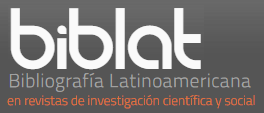Evaluation of genotoxic effect of prozac (fluoxetine) without and with addition of vitamins A and C by means of the comet assay in culture of CHO-K1 cells
DOI:
https://doi.org/10.5433/1679-0367.2005v26n2p95Keywords:
Fluoxetine, Vitamins A and C, CHO-k1, Comet assay.Abstract
The fluoxetine, commercially named Prozac, is efficient against depression and anxiety, with lower risk of collateral effects. However, the possible genotoxic effects are still unknown. The use of vitamins as protectors against damages on cells and DNA has been evaluated, mainly for vitamins A and C. Furthermore, the associative effect of vitamins with several medicines demands studies. The evaluations of genotoxic effect of Prozac and vitamins A and C protective effect were carried out in culture of Chinese hamster ovary cells, CHO-K1, by means of the comet test. The Prozac was used, in liquid formulation, diluted in 5µg, 1µg and 0.2 µg/mL of culture medium. The vitamins were used, in liquid formulation, at the concentrations of 3µg and 880,5 µg/mL of culture medium to vitamins A and C, respectively. The treatments were carried out during 1 hour. The obtained data demonstrated that only the highest concentration of Prozac (5 µg) is genotoxic and both vitamins A and C reduced such genotoxicity. The data suggest a follow-up on patients who use Prozac and the possibility of vitamins A and C association in order to minimize the collateral genotoxic effects.
Downloads
Downloads
Published
How to Cite
Issue
Section
License
Copyright (c) 2009 Semina: Ciências Biológicas e da Saúde

This work is licensed under a Creative Commons Attribution-NonCommercial 4.0 International License.
adopts the CC-BY-NC license for its publications, the copyright being held by the author, in cases of republication we recommend that authors indicate first publication in this journal.
This license allows you to copy and redistribute the material in any medium or format, remix, transform and develop the material, as long as it is not for commercial purposes. And due credit must be given to the creator.
The opinions expressed by the authors of the articles are their sole responsibility.
The magazine reserves the right to make normative, orthographic and grammatical changes to the originals in order to maintain the cultured standard of the language and the credibility of the vehicle. However, it will respect the writing style of the authors. Changes, corrections or suggestions of a conceptual nature will be sent to the authors when necessary.
This Journal is licensed with a license Creative Commons Assignment-NonCommercial 4.0 International.
















